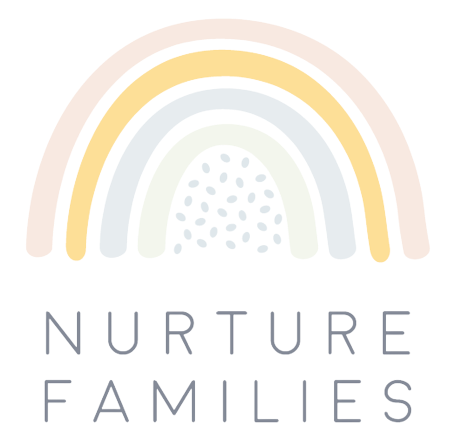- What is Containment? A Closer Look
- The Power of Attunement: Tuning in to Yourself and Others
- Build Your Support System
- Embracing Imperfection and Repair
- Key Takeaways
Hi, it's Sue here from the Parent-infant Relationship Team at Nurture Families.
As a parent-infant relationship practitioner, I've witnessed the incredible impact that containment and attunement can have on individuals and relationships. These concepts, rooted in attachment theory, provide a framework for creating safe spaces where emotions can be expressed, difficulties navigated, and growth nurtured. In a world filled with uncertainty and challenges, understanding and applying containment and attunement is more important than ever.
My friend Sarah recently shared her struggles with her own emotions when her baby, Evie, cries intensely. "I feel so helpless and anxious," she confessed. "Sometimes, I even get angry and doubt myself as a mother. Is this normal?" Sarah's experience is common among parents who find themselves overwhelmed by their child's distress, questioning their ability to provide comfort and support.
What is Containment? A Closer Look
Containment is not about control or maintaining the status quo; instead, it involves creating a safe space for others to express emotions and navigate difficulties. It's about being present and attuned to another's needs while also understanding our own capacity.
When baby Evie cries, Sarah is learning to provide containment by offering a safe, loving space for her to express distress. This means staying grounded and present, helping Evie feel secure and understood. It doesn't mean having all the answers or always soothing perfectly, but rather being fully present and accepting of Evie's experience.
The Power of Attunement: Tuning in to Yourself and Others
Attunement goes hand-in-hand with containment. It means being aware of others' needs and emotions while also understanding our own. When we are attuned to ourselves, like Sarah is learning to do, we can recognise our limits and capacity for providing support. We can take breaks when needed, ensuring that we don't become overwhelmed or depleted.
Attunement also allows us to connect with others more deeply. As Sarah becomes more attuned to Evie's cues and communications, she can respond in a way that helps Evie feel seen, heard, and understood. This builds trust and strengthens their bond, creating a secure base from which Evie can explore the world.
Strategies for Maintaining Emotional Balance
Learning to provide containment and attunement can be challenging, especially in the face of intense emotions. Here are some strategies to help maintain your own emotional balance:
- Take a Deep Breath: When emotions start to escalate, try the 3-4-5 breathing technique. Breathe in for three seconds, hold for four, and exhale for five. Repeat as needed to calm your nervous system.
- Create a "Yell-Proof Shield": If your child's cries or screams are a trigger, envision yourself holding up a shield, with their distress bouncing off of it. This visualisation can help you stay grounded and present.
- Use Grounding Statements: Develop a set of affirmations to anchor yourself when feeling overwhelmed, such as "I am safe," "I can cope with this," or "I'm grateful for..." Post these around your home for easy access during challenging moments.
Build Your Support System
Providing containment and attunement to others requires us to have a strong support system of our own. Surround yourself with people who offer understanding, empathy, and a safe space to share your own emotions and challenges.
This may include family, friends, or professionals such as therapists or support groups. Don't hesitate to reach out for help when needed; seeking support is a sign of strength and self-awareness, not weakness.
Embracing Imperfection and Repair
As we learn to provide containment and attunement, it's essential to embrace imperfection. There will be moments when we fall short, losing our cool or reacting in ways we later regret. In these instances, repair becomes crucial.
Apologise to your child, acknowledging your missteps and committing to trying again. This models humility, accountability, and the importance of repairing ruptures in relationships. It teaches children that mistakes are a part of growth and that there is always an opportunity for a "do-over."
Key Takeaways
- Containment involves creating a safe space for others to express emotions and navigate difficulties, while attunement means being aware of others' needs and our own capacity.
- Providing containment and attunement builds trust, strengthens relationships, and fosters growth and healing.
- Use strategies like deep breathing, visualisation, and grounding statements to maintain your own emotional balance.
- Building a strong support system is essential for providing containment and attunement to others.
- Embrace imperfection and prioritise repair when ruptures occur, modeling accountability and growth.
Containment and attunement offer a pathway to creating safe, nurturing spaces where individuals can express themselves, navigate challenges, and grow. By learning to provide this for others while also tending to our own needs, we can cultivate more resilient, compassionate relationships and communities. It's a lifelong journey, but one that is well worth the effort.
Nurture Families support services include doulas, home visitors, and parent-infant therapists.
We cover Worcestershire and North Herefordshire currently.
Get in touch today to work one to one with our parent-child relationship specialists – home visitors and parent-infant therapists.




